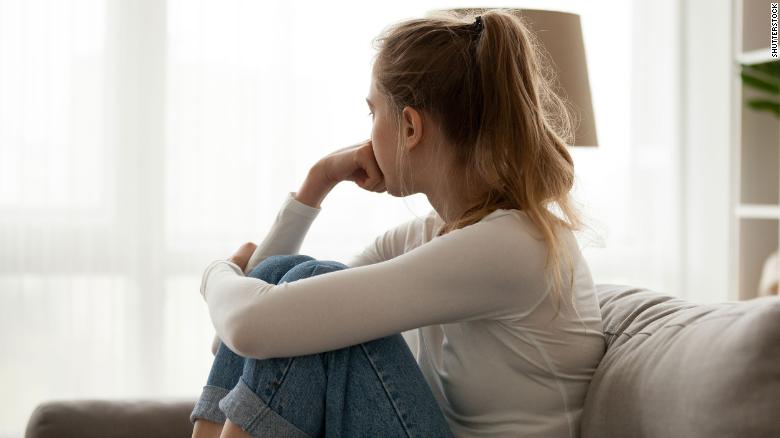More than half of individuals with prior COVID-19 illness have met the criteria for symptoms of major depressive disorder, according to a research letter published online March 12 in JAMA Network Open.
Roy H. Perlis, M.D., from Massachusetts General Hospital in Boston, and colleagues examined whether acute COVID-19 symptoms are associated with the probability of subsequent depressive symptoms. Data were included for 3,904 individuals who reported prior COVID-19 illness and were surveyed regarding specific symptoms and overall perceived severity of illness between June 2020 and January 2021, at a mean of 4.2 months since initial symptoms. Participants also completed the Patient Health Questionnaire-9 for symptoms of depression.
The researchers found that 52.4 percent of the participants met the criteria for symptoms of major depressive disorder. Presence of headache was associated with an increased probability of moderate or greater depression symptoms in fully adjusted models (adjusted odds ratio, 1.33), as was greater overall severity (somewhat versus not at all severe: adjusted odds ratio, 2.59; very versus not at all severe: adjusted odds ratio, 5.08). Compared with men, women were less likely to have symptoms (adjusted odds ratio, 0.72), and with increasing age, there was a decrease seen in the likelihood of symptoms (adjusted odds ratio by decade, 0.76).
“Our results add to a growing body of evidence suggesting the importance of considering potential neuropsychiatric sequelae of COVID-19 infection,” the authors write. “Our results also suggest the importance of considering strategies that might mitigate the elevated risk of depressive symptoms following acute infection.”
One author disclosed financial ties to the biopharmaceutical industry.


